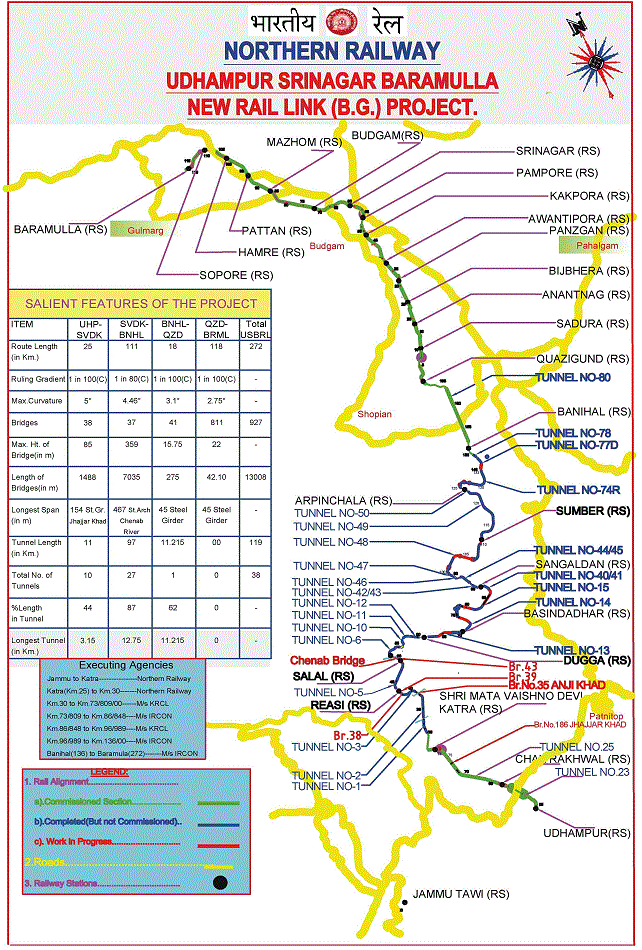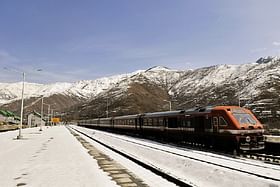Indian Railways is likely to double the existing 135-kilometre long Banihal-Baramulla railway track in Jammu and Kashmir for faster movement of trains to and from the valley.
This comes in the backdrop of the Ministry of Railways inviting tenders to start final location survey (FLS) for double-laning of Baramulla-Qazigund section.
Currently, there is a single track line from Baramulla to Qazigund and the project, if approved, will double the capacity of the railways.
“Tenders have been issued for the engineering survey of the Railway line/roadway using modern survey techniques such as Aerial Survey (Aerial Photogrammetric survey or Aerial LiDAR) and DGPS (Differential Global Positioning System),” Saqib Yousuf, Chief Area Manager (CAM) Kashmir Railways said.
The CAM said that after the proposed survey, the capacity of the trains and the number of the trains will increase tremendously.
“The capacity of the trains will be doubled,” he said, and added that the work is expected to start soon.
What Is This Project
The Baramulla-Banihal track is part of the 272-km Udhampur-Srinagar-Baramulla Rail Link (USBRL) project. It aims to connect Kashmir Valley with the rest of the country by a broad-gauge railway line.
The four sections of the USBRL rail project, which is being built at a cost of Rs 27,949 crore are Udhampur-Katra, Katra-Banihal, Banihal-Qazigund, and Qazigund-Baramulla.

Construction of the first three phases of the railway project has been completed and the line is operational between Banihal and Baramulla in Kashmir Valley and Jammu-Udhampur-Katra in Jammu region.
- The 118-km Qazigund-Baramulla section was commissioned in three phases between October 2008 and October 2009.
- The section from Banihal to Quazigund involving Pir Panjal Tunnel, the longest transportation tunnel in India of total 11.215 km length was opened to the public in June 2013.
- Similarly, the 25-km Udhampur-Katra section which is 25 km long was opened to the traffic in July 2014.
Work on the intervening 111 kms of Katra-Banihal section is going on and this section is the most challenging portion for construction due to its geology and extensive riverine system with deep gorges.
With 87 per cent of the total length (97 km out of 111 km) in tunnels, this section presents an engineering challenge in the highly rugged and mountainous terrain with one of the most difficult and complex Himalayan geology.
The Katra-Banihal line is expected to be operationalised by January 2024.


